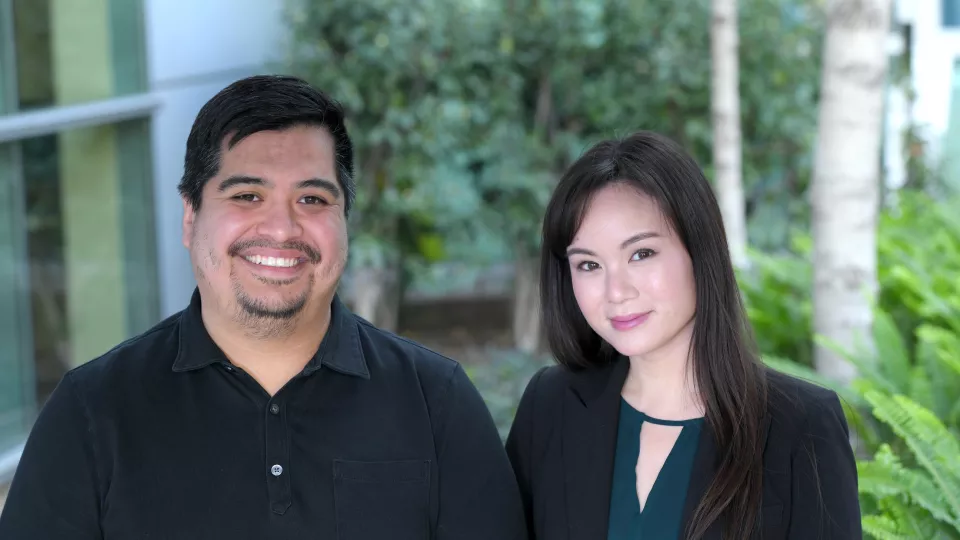Newswise — The clinical research program in the Division of Urology focuses on improving care for children and adolescents with a range of urologic conditions—including bladder exstrophy, vesicoureteral reflux, posterior urethral valves and more.
To help support and grow this research, the team recently welcomed two new full-time staff who are leading the program: Senior Research Associate Christine Do, DrPH, MPH, and Clinical Research Coordinator II Jonathan Olais, MPA, CCRP.
Dr. Do joined the team in July from Loma Linda University, and Olais joined early last year from Memorial Sloan Kettering Cancer Center in New York.
“Clinical research is a critical part of our efforts to provide the best possible care for children with urologic conditions,” says Roger De Filippo, MD, Chief of the Division of Urology at Children’s Hospital Los Angeles. “We are excited to grow our team as we work to develop innovative approaches to care.”
Machine learning and GIS mapping
One of the group’s newest projects, spearheaded by Dr. De Filippo, is exploring the potential of machine learning and artificial intelligence to aid in the diagnosis of vesicoureteral reflux.
In this congenital condition, urine flows backward from the bladder to the ureters or kidneys. Currently, reflux is diagnosed via a voiding cystourethrogram (VCUG)—a type of X-ray—and graded on a scale of one to five.
The team aims to develop an algorithm that could help to more easily interpret those imaging results. Long-term, the goal is to potentially use such an algorithm to better predict the prognosis for each child.
Another new, early-stage project is focused on integrating geographic information systems (GIS) mapping into pediatric urology. Specifically, researchers led by Associate Chief of Urology Evalynn Vasquez, MD, MBA, will examine whether there are particular geographic “hot spots” for spina bifida—a neural tube birth defect.
“Los Angeles is home to a large population of Hispanic families, and there is a higher prevalence of spina bifida in this population compared with non-Hispanic families,” Dr. Do explains. “We want to explore potential environmental and geographic factors that may be elevating the risk for this birth defect. This could help us develop preventive measures and interventions that could have the greatest impact.”
Improving care for reflux, hypospadias and more
The Urology team also presented research at the Societies for Pediatric Urology 2023 Fall Congress, held in September in Houston.
That study, led by Scott Sparks, MD, examined local rates of breakthrough urinary tract infections—based on antibiotic choice—for children with reflux taking continuous antibiotic therapy.
In addition, the team has proposed the first definition of post-obstructive diuresis in neonates undergoing surgery for posterior urethral valves. Results of that study, led by Andy Chang, MD, were presented at the 2022 Western Section of the American Urological Association Annual Meeting, and follow-up research is ongoing.
Other current projects include:
- A study of false positive pregnancy test results in patients who have undergone bladder augmentation surgery. The team discovered this phenomenon last year and is now investigating why these false positive pregnancy tests occur.
- A prospective study on how to better prepare children and families psychologically for major complex urinary reconstructive surgeries
- An assessment of parent perceptions of surgery for hypospadias—a complex condition in which the urethra forms abnormally and impacts genital development in boys. The study focuses on how providers can better educate families prior to their child’s surgery.
“These are major surgeries, and many families are scared and find inaccurate information online,” Olais says. “Our study aims to explore how nurses can help enhance this education and alleviate some of these fears.”


